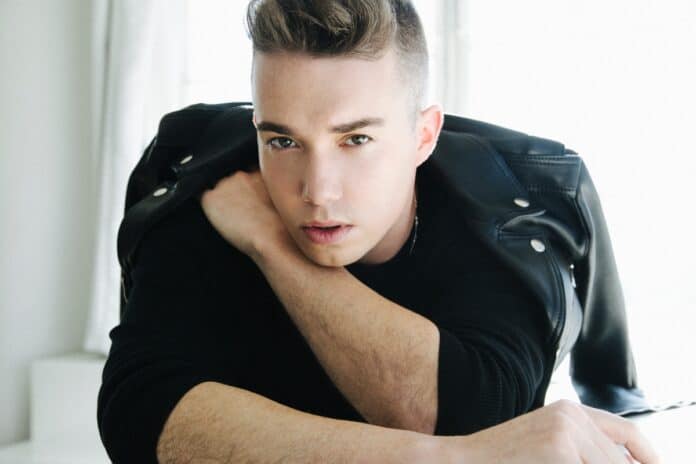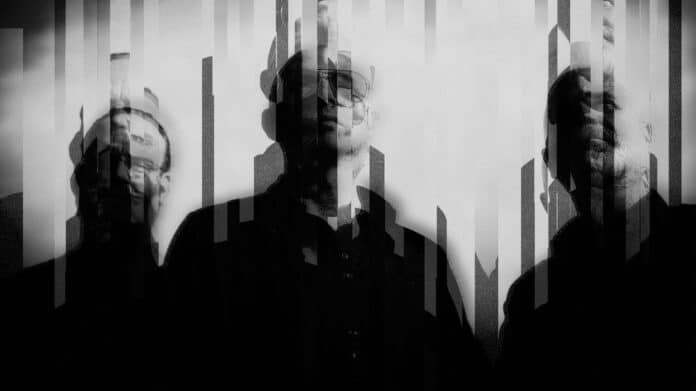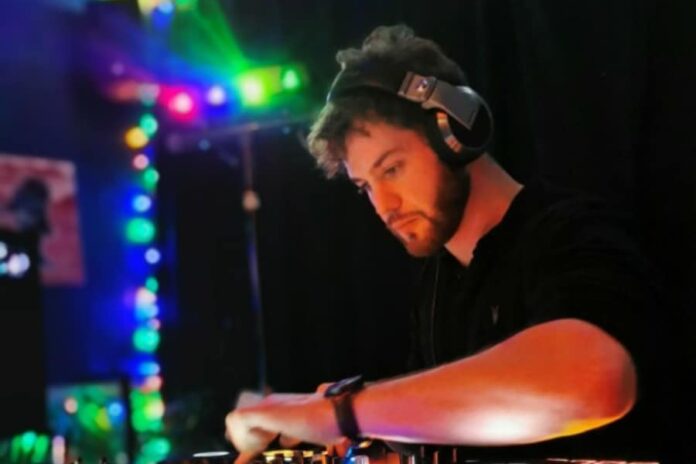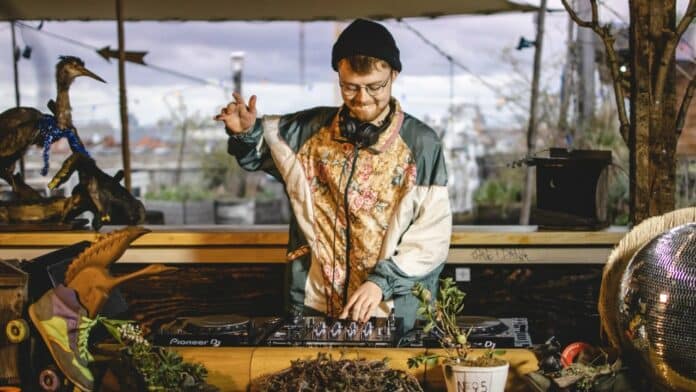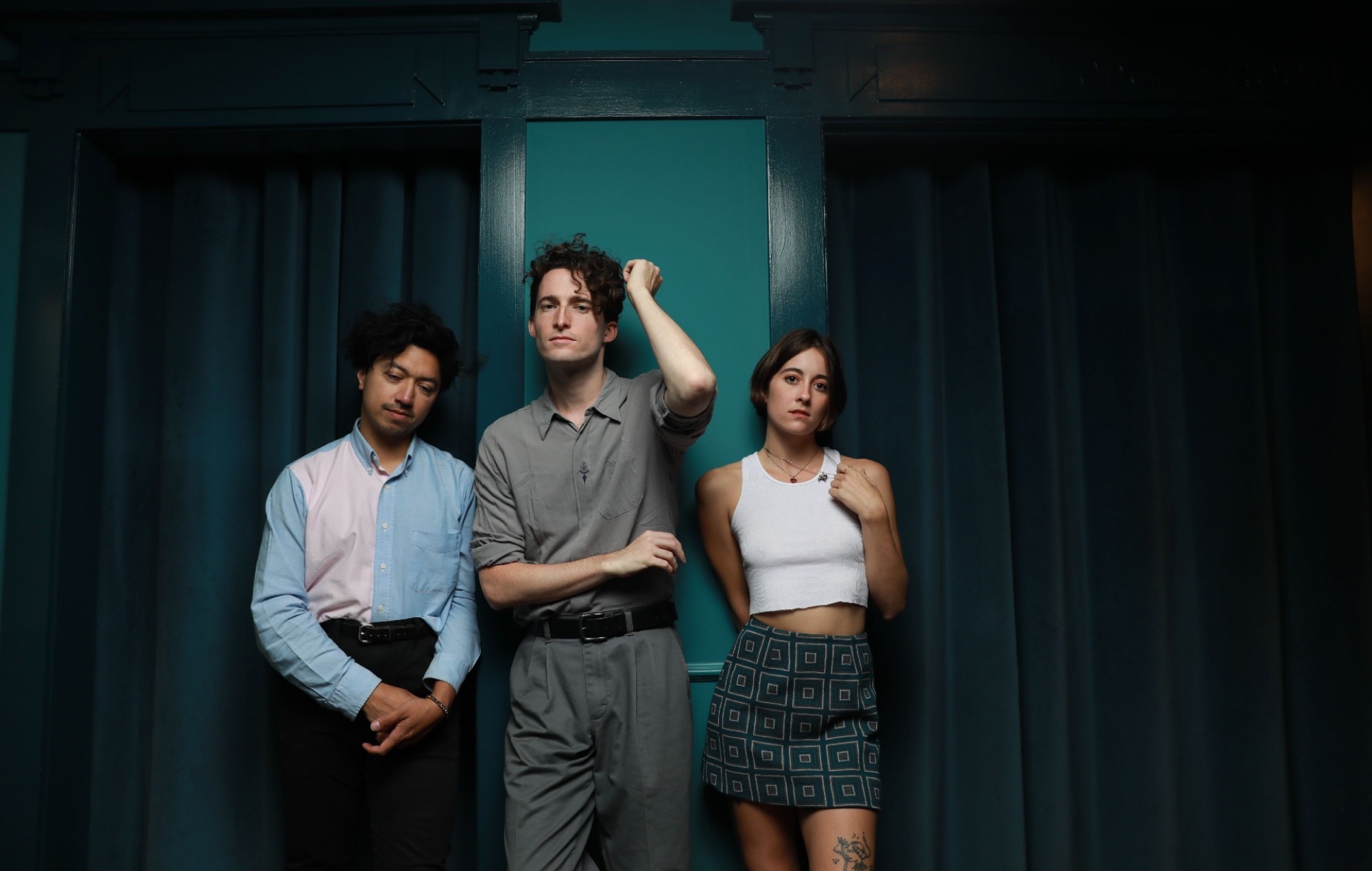
Nation Of Language: Brooklyn’s synth-pop romantics realising their dreams
Ian Devaney can pinpoint the exact moment everything came into focus for Nation Of Language: “I was out riding with my father and OMD’s ‘Electricity’ came on the radio, it was just one of those magical experiences,” says the frontman dialling in from his tour-stop hotel room in Seattle, halfway into their recent run of headline US dates.
“It was so simple and pure, you could hear the organ, the bass, the electronic drums – it was this line between post-punk and new wave synth music.” The song also packed an element of nostalgia for him. “It used to be one of my dad’s favourite songs – he would play it a lot when I was young. It brought me right back to my childhood in a way that was very transportive.”
It wasn’t long before the Brooklyn-based trio were capturing imaginations of their own with 2020’s disarming debut album ‘Introduction, Presence’. The self-release was filled with moving landscapes that felt like love letters to the greats, from Joy Division through to New Order and Kraftwerk. This month, their second full-length ‘A Way Forward’ arrives and, ironically, it navigates further back on their own heroes’ influences.
Until that sudden flash of direction on the car stereo, Devaney had been toiling on the New York DIY scene with the band’s previous post-punk set-up for some time. Though the sound didn’t pay immediate dividends, it did see them tour the US with The Wombats in 2018, where he would meet future synth-player and wife Aidan Noell during a stop in Kansas City. He says eventually dropping the guitar was a pivotal moment. “I’d been writing on guitar but I’m not very good at guitar, so every time I sat down I was writing the same song. I knew that I wanted to change something up – so I put the guitar aside and started writing with keyboard and bass.”
Alongside Devaney’s side-hustle delivering pizza, the foundations slowly came together. “We got a bunch of friends, played at our local bar and just kept going.” Forced line-up changes also helped things along. “A bunch of people moved to Los Angeles so Aidan stepped in. She’d never played an instrument before but was like ‘if you’ll teach me these synth parts, I’ll do it – and she did and she picked them up like that which was incredible.”
The marriage was central to the band’s breakthrough in terms of musical chemistry and financially. “Instead of a big wedding registry of things for people to get us, we were just like, ‘Can you just give us money?’. We took all of that money and made the record with it. We still haven’t had a honeymoon but we have the first record,” he says, laughing. It’s easy to romanticise the circumstances looking back, but at the time it was a do or die moment. “I was so stressed, we had no money left. Any time I wasn’t walking around handing out résumés in New York and getting turned away, I was just at home working on music, as there was nothing else to do.”
The self-released debut album ‘Introduction, Presence’ was dropped into the world mid-pandemic, but their blend of ‘80s influences and impacting delivery sparked a deep connection in listeners, sweeping across radio stations in the US and Europe gaining millions of streams organically in far-flung places. NME’s four-star review at the time said that “by drawing on the masters and executing those styles with beauty and ease – Nation Of Language have unearthed a vibrant space of their own.”
“Before that, it was a pretty dark time. We’d poured all of our money and years into this thing. When the lockdown started we were three shows into a national tour and I was like, ‘If we can’t play, there’s no way anyone’s going to hear it’. We were super fortunate in that some people at radio stations like KEXP just started spreading the word in a way that was really mind-blowing. It was weird being stuck at home and looking at a chart that shows more people are listening to your music. It’s like someone calling you saying your dreams are coming true.”

It’s easy to see why the record struck such a deep chord. Not only did they emulate those classic influences of new wave and synth-pop, they managed to build on the legacy of those names, filtering their influences through an American lens and adding deeply romantic lyricism. Just take album opener ‘Tournament’ as an example; Devaney pours his soul into the emotionally ripe anthem as synths cascade around him: “To feel the proof / As I’m walking around the city / In a torrent of rain.” When NME mentions these lyrics, he laughs: “I was like, is this too much John Cusack? I decided it was just the right amount of John Cusack.”
It makes sense the band can tap into these influences so naturally, as Devaney grew up romanticising that period of ‘80s British alternative music. “I used to love watching 24 Hour Party People and all of that mythologising that era – it’s woven in with the impact of Future Islands and LCD Soundsystem. Those bands were a gateway into that world, I let myself bask in the glory of what was going on musically in that moment.”
Where the band’s debut album captured the essence of early ‘80s new wave music, the second album ‘A Way Forward’ drills further into the make-up of those bands. “I was interested in looking at the influences of those influences. If I directly look at Kraftwerk, Neu! and Cluster, these bands that so influenced new wave music – what can I take out of them that might be different to what everyone back then took out of them. We really wanted to let that be the exploration of synth manipulation and letting things be as long and beautiful as they could be.”
You only need to hear the stirring synth progression of ‘Wounds Of Love’ to see they’ve stayed true to the blueprint. It’s an elegant moment that could slot right onto the German icons’ seminal album ‘Autobahn’. “One of the things is figuring out the tools you use to do it. If you could have one synthesizer define Nation Of Language, it would be the Mini Moog. You watch early live Kraftwerk videos and that’s what they’re using.”
Keeping the formula simple was also key: “It can be so easy in a studio setting to want to use everything. I really like the idea of limiting yourself to a certain number of tools because especially back then, the number of synths people would have had was very limited.”
With two albums behind them, the band are now focused on realising their dreams on the road, boasting sold-out shows across America. “It really feels incredible. We’d never sold out a show anywhere before, no matter how small the venue. We’ve gone from that to selling out the Bowery Ballroom in New York, which is such a hallowed place to me. Being able to meet people and see parts of the country again that you don’t get to see unless you’re driving the whole country – it’s such a magical thing.”
The couple may have sacrificed their honeymoon for the album, but you can tell by the excitement in Devaney’s tone that there are no regrets. The success of their debut album alone will see them tour Europe in January with dates in Glasgow, Manchester and Dublin. NME reasons: That’s kind of a honeymoon, right? “Absolutely, I can’t believe it. Touring around the US is already so unbelievable, so the idea of going [over to the UK] and sharing this [music] is overwhelming.” You can’t help but feel they better get used to it. Their love for their craft feels poised to seal Nation Of Language as giants of their new wave stomping ground in their own right.
Nation of Language’s new album ‘A Way Forward’ is released November 5 via PIAS

